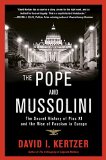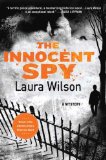Summary | Excerpt | Reviews | Beyond the book | Read-Alikes | Genres & Themes | Author Bio

A Novel
by Alan FurstSet in the perilous period of transition before the outbreak of World War II, when hundreds of Italian intellectuals and journalists fled to Paris. As they formed resistance groups and founded clandestine newspapers, spies from nations friendly and hostile moved freely in their midst. Carlo Weisz doubles as a foreign correspondent for Reuters, and the editor of an underground antifascist newspaper. But even his cover job offers no security: In these dangerous times, any journalist is fair game.
From Alan
Furst, whom The New York Times calls “America’s preeminent spy novelist,”
comes an epic story of romantic love, love of country, and love of
freedom–the story of a secret war fought in elegant hotel bars and
first-class railway cars, in the mountains of Spain and the backstreets of
Berlin. It is an inspiring, thrilling saga of everyday people forced by
their hearts’ passion to fight in the war against tyranny.
By 1938, hundreds of Italian intellectuals, lawyers and journalists,
university professors and scientists had escaped Mussolini’s fascist
government and taken refuge in Paris. There, amid the struggles of émigré
life, they founded an Italian resistance, with an underground press that
smuggled news and encouragement back to Italy. Fighting fascism with
typewriters, they produced 512 clandestine newspapers. The Foreign
Correspondent is their story.
Paris, a winter night in 1938: a murder/suicide at a discreet lovers’ hotel.
But this is no romantic traged–it is the work of the OVRA, Mussolini’s
fascist secret police, and is meant to eliminate the editor of Liberazione,
a clandestine émigré newspaper. Carlo Weisz, who has fled from Trieste
and secured a job as a foreign correspondent with the Reuters bureau,
becomes the new editor.
Weisz is, at that moment, in Spain, reporting on the last campaign of the
Spanish civil war. But as soon as he returns to Paris, he is pursued by the
French Sûreté, by agents of the OVRA, and by officers of the British
Secret Intelligence Service. In the desperate politics of Europe on the edge
of war, a foreign correspondent is a pawn, worth surveillance, or blackmail,
or murder.
The Foreign Correspondent is the story of Carlo Weisz and a handful of
antifascists: the army officer known as “Colonel Ferrara,” who fights for a
lost cause in Spain; Arturo Salamone, the shrewd leader of a resistance
group in Paris; and Christa von Schirren, the woman who becomes the love of
Weisz’s life, herself involved in a doomed resistance underground in Berlin.
The Foreign Correspondent is Alan Furst at his absolute best–taut and
powerful, enigmatic and romantic, with sharp, seductive writing that takes
the reader through darkness and intrigue to a spectacular denouement.
Alan Furst
has been compared to Graham
Greene and Eric Ambler, and is
considered by many to be the
master of the historical spy
novel. He is the author of
Night Soldiers, Dark Star, The
Polish Officer, The World at
Night, Red Gold, Kingdom
of Shadows and The
Foreign Correspondent.
Furst describes the area of his
interest as "near history." His
novels are set between 1933 and 1945, from Adolf Hitler's ascent, with the first Stalinist purges in Moscow coming a year later, to the end of the war in Europe. Because the history of this period is so well ...

If you liked The Foreign Correspondent, try these:

by David I. Kertzer
Published 2014
The gripping story of Pope Pius XI's secret relations with Italian dictator Benito Mussolini. This groundbreaking work will forever change our understanding of the Vatican's role in the rise of Fascism in Europe.

by Laura Wilson
Published 2009
London, June 1940. When the body of silent screen star Mabel Morgan is found impaled on a wrought-iron fence, Detective Ted Stratton is not convinced it is suicide. Meanwhile, MI5 agent Diana Calthrop is leading a covert operation. When Stratton’s path crosses Diana’s, the pair start to uncover the truth.
Analyzing humor is like dissecting a frog. Few people are interested and the frog dies of it.
Click Here to find out who said this, as well as discovering other famous literary quotes!